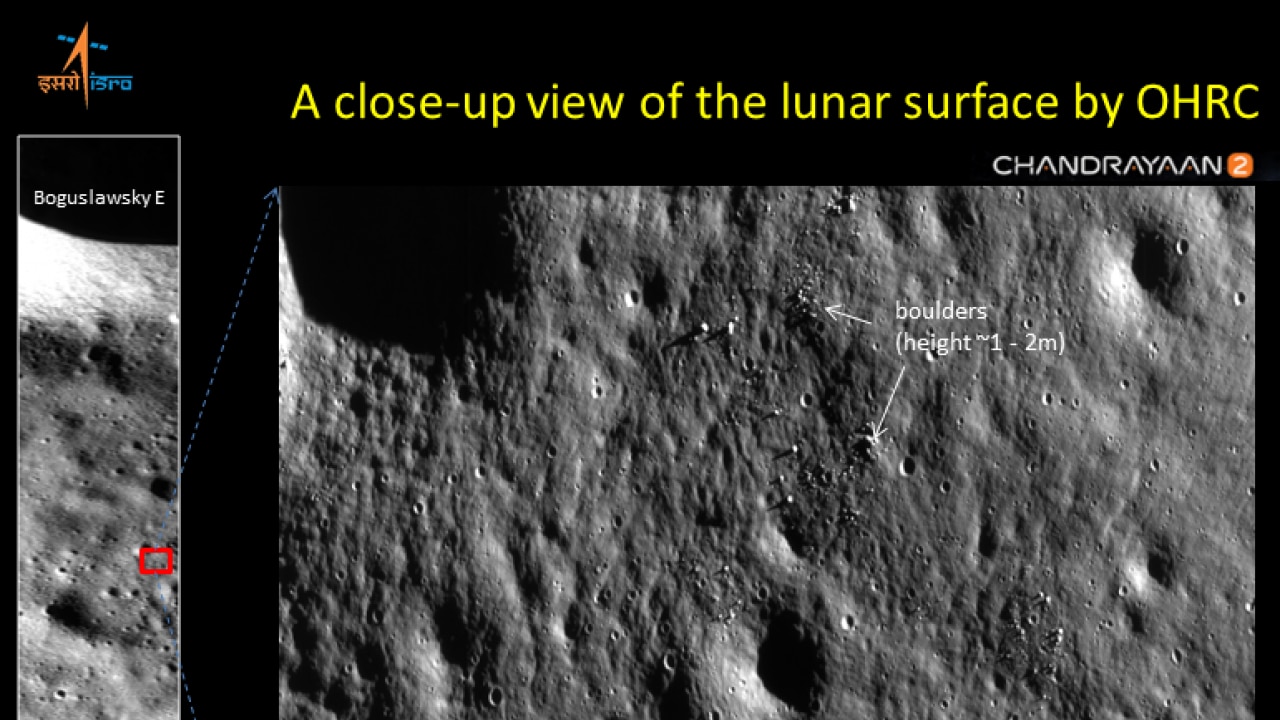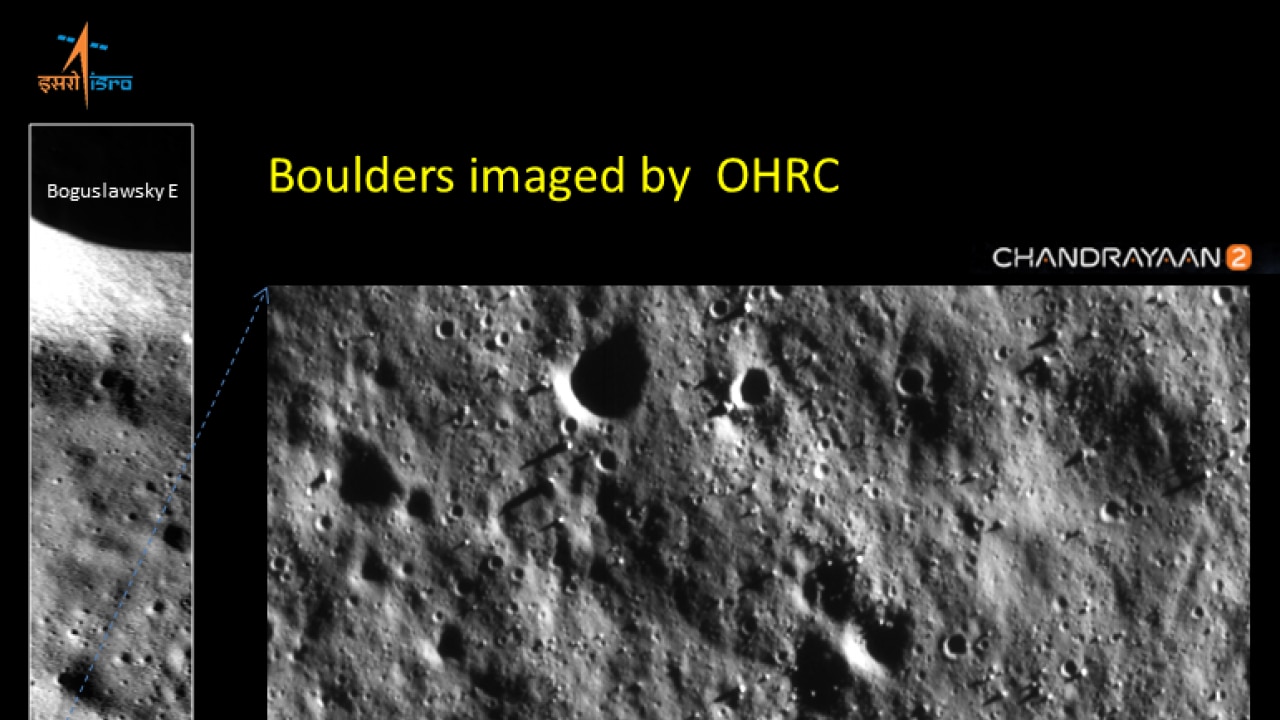Chandrayaan-2 Takes Breathtaking Pictures of Moon Using Orbiter High Resolution Camera, Take A Look

Chandrayaan-2, the second lunar mission by the Indian Space Research Organisation (ISRO), failed to make a soft landing on moon and lost connection with Vikram Lander. ISRO has released the latest photos of the moon taken from high-resolution Chandrayaan-2 orbiter's camera as it continues to perform scheduled experiments on the lunar surface.

Chandrayaan-2, the second lunar mission by the Indian Space Research Organisation (ISRO), failed to make a soft landing on moon (September 7) and lost connection with Vikram Lander.
Vikram Lander was just 2.1 kilometres above the lunar surface when it lost contact with ISRO, throwing a pall of gloom over the Indian space agency.
Have a look at the images taken by #Chandrayaan2's Orbiter High Resolution Camera (OHRC).For more images please visit https://t.co/YBjRO1kTcL pic.twitter.com/K4INnWKbaM
— ISRO (@isro) October 4, 2019
After the hard-landing of Vikram Lander on the lunar surface, the Indian Space Research Organisation (ISRO) had expressed hopes that they have at least 14 days to establish contact but hasn't been able to communicate with it so far.
National Committee of academicians and ISRO experts is analysing the cause of communication loss with VikramLander.
Chandrayaan-2 Takes Moon Images Using OHRC

The OHRC on-board Chandrayaan-2 provides very high spatial resolution images of the moon. This operates in the visible panchromatic band (450-800 nm).
OHRC important tool for lunar topographic studies. With a spatial resolution of 25 cm from a 100 km orbit and a swath of 3 km, it provides the sharpest images ever from a lunar orbiter platform. OHRC is an important new tool for lunar topographic studies of select regions.

This OHRC image was acquired at 4:38 IST on September 5, 2019 from 100 km altitude.
The image covered a part of Boguslawsky E crater (14 km diameter and 3 km depth) and surroundings, which lies in the southern polar area of moon (Palon H. Ludwig von Boguslawsky was a German astronomer).



No comments:
Post a Comment